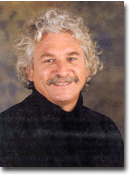| Biography: Dr. Lakatta received his M.D., Magna cum laude, at Georgetown University School of Medicine. Following an internship and residency in Medicine at Strong Memorial Hospital, University of Rochester, Rochester, N.Y., he trained in basic research for two years at the NIH. Subsequently, he completed his cardiology fellowship at Georgetown and Johns Hopkins University Schools of Medicine. This was followed by a year of basic research training in the Department of Physiology, University College and the Cardiothoracic Institute, London England. Dr. Lakatta is the Chief of the Laboratory of Cardiovascular Science, National Institute on Aging. He also holds adjunct appointments as Professor, Department of Physiology, University of Maryland School of Medicine, and Professor, Cardiology Division, Johns Hopkins School of Medicine. Dr. Lakatta is recognized nationally and internationally as an expert in cardiovascular research. He has authored over 270 original publications in top peer reviewed cardiovascular journals, written over 180 invited reviews/book chapters and delivered over 320 invited lectures. He is a member of multiple scholarly societies and journal editorial boards. He has received several awards, among which has been election into the American Society for Clinical Research, the Association of American Physicians. Dr. Lakatta has also been elected as a fellow in the APS Cardiovascular Section, a fellow of the American Heart Association (F.A.H.A.) and is an Inaugural Fellow of the Council on Basic Cardiovascular Sciences of the American Heart Association. |
| Dr. Lakatta directs the Cardiac Function Section (CFS) which has a broad based research program ranging from studies in humans to molecules. Further studies examine the functional effects of reactive oxygen and nitrogen species on cardiovascular function. There is considerable evidence that these play important roles in health and in disease states, including myocardial ischemia, congestive heart failure and atherosclerosis. These reactive species may frequently exert dramatically opposite biological effects, yet the spectrum of molecular targets overlaps to a considerable degree, particularly with respect to critical or regulatory thiol sites on proteins. Experiments are designed to examine how the dynamic competition between these species may be important in the evolution of various pathophysiological states, and how local control over nitric oxide and reactive oxygen species (ROS) production, and hence targeting, is responsible for some of the most important aspects of their physiologic and/or pathological roles. Specific areas of interest include, (1) the relationship between ROS, the redox state, and the function of mitochondria, and, (2) the role of NO in excitation-contraction coupling in heart. |
| Research Areas: |
- Cardioprotection Unit - Steven J. Sollott, M.D.
- Cardiovascular Gene Therapy Unit - Mark Talan, M.D., Ph.D.
- Cellular Biophysics Unit - Michael D. Stern, M.D.
- Human Cardiovascular Studies Unit - Samer S. Najjar, M.D.
- Hypertension Unit - Alexei Y. Bagrov, M.D., Ph.D.
- Molecular Cardiology Unit - Kenneth R. Boheler, Ph.D.
- Receptor Signaling Unit - Rui-Ping Xiao, M.D., Ph.D.
|



